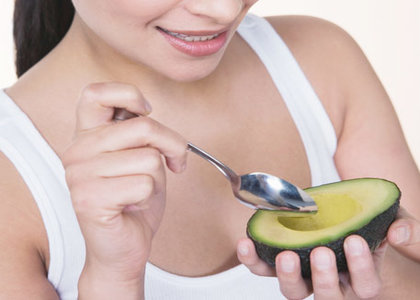- Home
- Editorial
- News
- Practice Guidelines
- Anesthesiology Guidelines
- Cancer Guidelines
- Cardiac Sciences Guidelines
- Critical Care Guidelines
- Dentistry Guidelines
- Dermatology Guidelines
- Diabetes and Endo Guidelines
- Diagnostics Guidelines
- ENT Guidelines
- Featured Practice Guidelines
- Gastroenterology Guidelines
- Geriatrics Guidelines
- Medicine Guidelines
- Nephrology Guidelines
- Neurosciences Guidelines
- Obs and Gynae Guidelines
- Ophthalmology Guidelines
- Orthopaedics Guidelines
- Paediatrics Guidelines
- Psychiatry Guidelines
- Pulmonology Guidelines
- Radiology Guidelines
- Surgery Guidelines
- Urology Guidelines
Eating avocados may help shed extra kilos: study

Washington : Trying to lose weight? Eating avocados may help lose excess body weight and reduce your waistline, a new research has found.
Researchers found that consuming avocados may be linked to an overall better diet, higher intake of essential nutrients, lower body weight, lower body mass index (BMI) and smaller waist circumference.
The findings, published in the journal Internal Medicine Review, show that avocado consumers weighed about 3.5 kilogram mes less, had a mean BMI of one unit less and 1.2 inch smaller waist circumference on average.
"These findings indicate incorporating avocados could be one way for Americans to meet the recommended fruit and vegetable intake and potentially improve physiologic measures," said Nikki Ford, Director of Nutrition at the Hass Avocado Board in the US.
"We continue to encourage health care professionals to remain committed to recommending avocados as part of an overall healthy diet," Ford said.
Avocado consumers were 33 per cent less likely to be overweight or obese and 32 per cent less likely to have an elevated waist circumference compared to non-consumers.
Incidence of metabolic syndrome was significantly reduced for avocado consumers, researchers said.
Researchers also found that avocado consumers have higher intakes of dietary fibre, total fat, good fats, vitamins E and C, folate, magnesium, copper and potassium and lower intakes of total carbohydrates, added sugars and sodium.
It was found that insulin and homocysteine levels, as well as a incidence of metabolic syndrome were lower in the avocado group.
Homocysteine, when elevated, has been associated with an increased risk of cardiovascular disease. Metabolic syndrome is the name for a group of risk factors that raises the risk for heart disease and other health problems, such as diabetes and stroke, researchers said.

Disclaimer: This site is primarily intended for healthcare professionals. Any content/information on this website does not replace the advice of medical and/or health professionals and should not be construed as medical/diagnostic advice/endorsement or prescription. Use of this site is subject to our terms of use, privacy policy, advertisement policy. © 2020 Minerva Medical Treatment Pvt Ltd